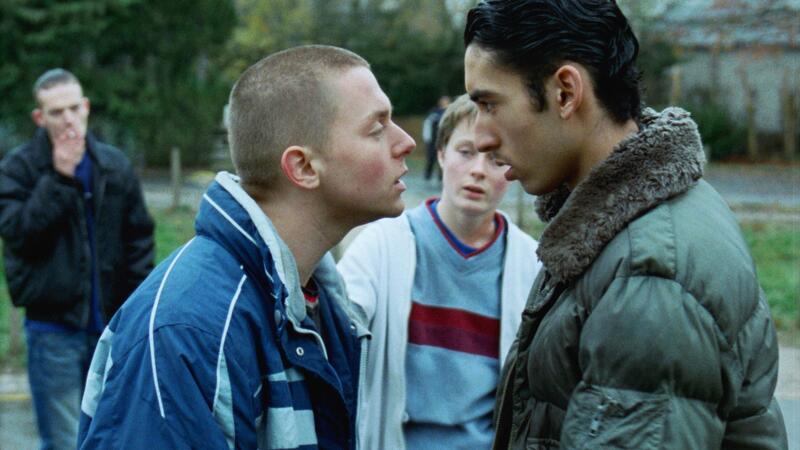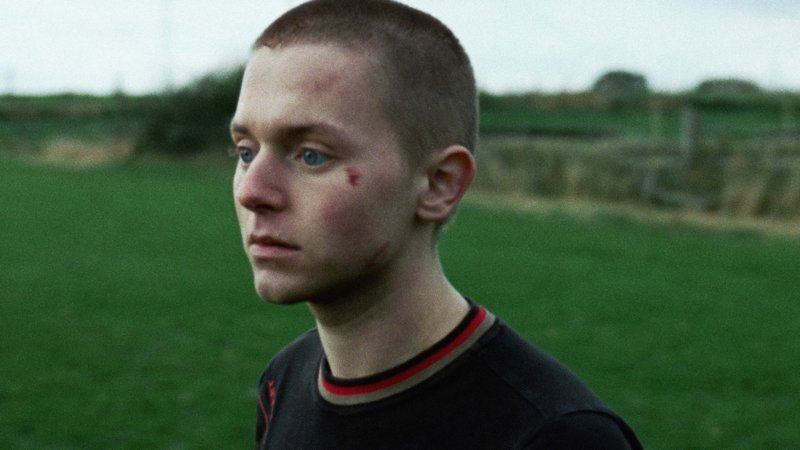Zlín 2024 Review: SKUNK Offers Brutal Adolescent Saga
Director Koen Mortier ('Ex-Drummer') dives into the harrowing reality of adolescent abuse and resilience, offering a stark, unflinching look at a system that perpetuates trauma.

Director Koen Mortier (Ex-Drummer) plunges into the turbulent world of a neglected teenager grappling with the scars of an abusive upbringing in his latest film, Skunk.
Adapted from a book of the same name by child psychiatrist Geert Taghon, Mortier presents a raw, unflinching look at the life of a boy uprooted from a chaotic home, only to face new torments in a youth facility. The Belgian director continues to explore the depths of human suffering, a theme that has become recurrent in his filmography, albeit focusing on early development.
Mortier's directorial style has always been a blend of stark realism and intense emotionality, and Skunk follows in this vein. Known for brutal storytelling, the provocative director employs a documentary-like approach in Skunk, opting for naturalistic performances and improvised scenes that heighten the authenticity of the protagonist's plight.
The decision to shoot on 16mm film with cinematographer Nicolas Karakatsanis further grounds the film in a gritty reality. Thibaud Dooms, in his debut role as the protagonist Liam, delivers a performance that captures the vulnerability and explosive fury of a boy struggling to navigate a system that has consistently failed him.
Mortier's thematic preoccupations with social dysfunction and the fragility of human connections are front and center in Skunk, where he boldly confronts harsh realities. The director offers minimal room for imagination, especially in his portrayal of Liam’s home life.
From an early age, Liam is subjected to abuse by his parents, who are both addicted to alcohol and drugs, utterly careless, and irresponsible, engrossed in an aimless lifestyle dominated by homemade sex orgies. Their ramshackle home provides a better spot for the dog than for their child. Most often confined to a basement, Liam finds an escape in watching ultraviolent, schlocky Western films.
The tide is supposed to turn when Liam is rescued from his abusive household and transferred to a youth facility housing other abused children. Yet, the cycle of violence persists in this understaffed facility, manifesting in various forms. Dooms, the actor portraying Liam, presents a youth who has known nothing but neglect and abuse, embodying a boy who never smiles. The film's title refers to his unique method of self-defense: immediate defecation when faced with emotional or physical distress.
Surprisingly, despite being a film about youth, the level of violence in Skunk nearly equals that of Ex-Drummer, featuring senseless beatings, sodomization, and suicide among the emotionally distressed children. The protagonist finds scant relief, his only respite being a pyromaniac boy obsessed with setting kittens on fire and a social worker named Pauline (Natali Broods). Broods delivers a performance reminiscent of Charlotte Gainsbourg.
Mortier, who also penned the adaptation, uses a non-linear, achronological narrative with flashbacks to peel back the layers of Liam’s traumatic past. This fragmented storytelling reflects the disjointed reality of trauma survivors, effectively immersing the audience in Liam's disoriented mental state and his mood swings.
Strategically placed therapy sessions provide a respite from the ongoing abuse and violence. In these sessions, conducted by Pauline, Liam is encouraged to express his suppressed emotions and buried traumas. Karakatsanis captures these moments in a shot-reverse-shot, static manner, focusing mainly on Liam’s face as he progressively releases his pent-up anger and frustration.
Compared to Mortier’s previous works, such as Ex-Drummer, Skunk appears more restrained in its use of stylistic flourishes, metaphors, and humor. The film’s implicit nihilism persists, but the narrative direction now shifts toward the painful process of healing — or the inability to heal — from deep-seated wounds.
The story predominantly centers on the protagonist, touching only briefly on the lives of characters in Liam’s orbit. This seems to be a deliberate choice, aimed at amplifying the emotional impact of the protagonist’s fate.
Mortier continues to explore his fascination with society's fringes and, despite focusing on adolescents, maintains his no-holds-barred approach up to the bitter finale. This finale transposes the tropes of rape-revenge exploitation films onto a naturalistic yet perverse coming-of-age story. Skunk could be seen as a masterclass in “how to raise a psychopath,” highlighting a broken system that not only fails to mitigate the consequences of a broken home but amplifies them.
Through this, the director crafts a sadistic yet compelling tale of resilience in the face of relentless adversity and the need for connection when all hope seems nearly lost. It is not an overstatement to call Mortier's latest oeuvre Ex-Drummer, Jr.
The film screened at the 2024 Zlin Film Festival, an international film festival for children and youth, held in the Czech Republic, and established in 1961, making it "the oldest festival of its kind in the world."
Skunk
Director(s)
- Koen Mortier
Writer(s)
- Koen Mortier
- Geert Taghon
Cast
- Thibaud Dooms
- Colin Van Eeckhout
- Pascal Braeckman










